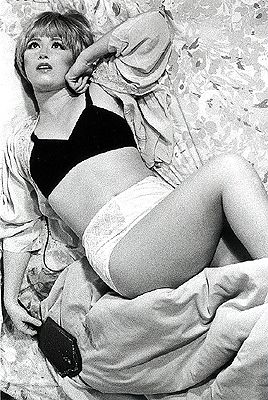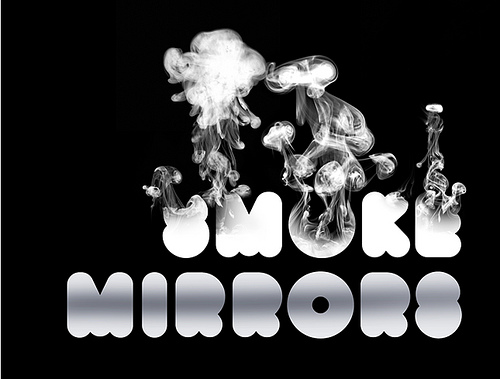
Just saw Guest of Cindy Sherman the other day, an interesting documentary detailing the failed relationship between art star Cindy Sherman and struggling filmaker Paul H-O. After becoming overwhelmed by the art world and Sherman's celebrity, H-O crawls away utterly emasculated, art dreams and ego crushed. Though meant to be a critique of the art world and the "cult of celebrity," the film manages to raise interesting questions about gender: it's very common to see successful men with less famous wives , many of whom have probably experienced the same erosion of identity. Why does the issue only garner attention (and its own movie) when the situation involves a successful woman whose celebrity subsumes the man's sense of self?
Ironically, H-O's loss of identity parallels Sherman's own deliberate subsumption of identity within various Hollywood-generated female stereotypes, in a manner that critiques and exposes our understanding of femininity and the role of the "male gaze" (excellent analysis found here). The images themselves speak volumes, serving as two-way mirrors that spit our reflexive projections back into our faces:










photos via MOMA.org
This series deliberately attacked the industry as a system for the subjugation of women (Heartney 177). Women in traditional fashion images are glamorized and positioned for the male gaze, but Sherman deconstructs this stereotype and the conventional codes of female allure. “They suggest that the binary opposition to the perfect body of the fashion model is the grotesque, and that the smooth glossy body, polished by photography, is a defense against an anxiety-provoking, uneasy, and uncanny body” (Mulvey 72). Again, she subverts the male gaze taking control of her character and its representation. Furthermore, Sherman exposes the fluidity of femininity in these images too, revealing the techniques by which women in fashion magazines and advertisements are imagined and constructed (Williamson 46). Her photographs debunk the founding ideologies of fashion magazines by openly criticizing and opposing their ability to construct a stable femininity.....Women affirm their gender identity through performative behaviour; gender is constituted through the ongoing and repetitive assemblage of female representations depicted in culture.....Her art plays on the feminist idea that gender arises exclusively within culture and deconstructs dominant gender ideologies, representing the underside of popular culture’s definition of “woman.” She exposes the arbitrariness of performativity and presents a variety of female identities that are found within popular culture, and reveals that these are nothing more than constructions. Behind each character there is no central identity. Each is a series of manipulations according to cultural conventions (Williamson 46). There is no essential femininity; the whole self is an imaginary construct that can be changed through performativity.
Ultimately, both men and women have to get dressed in the morning- how is it "degrading" or "frivolous" to take control of how you present yourself?
What do you think of the fashion industry's effect on women?









No comments:
Post a Comment